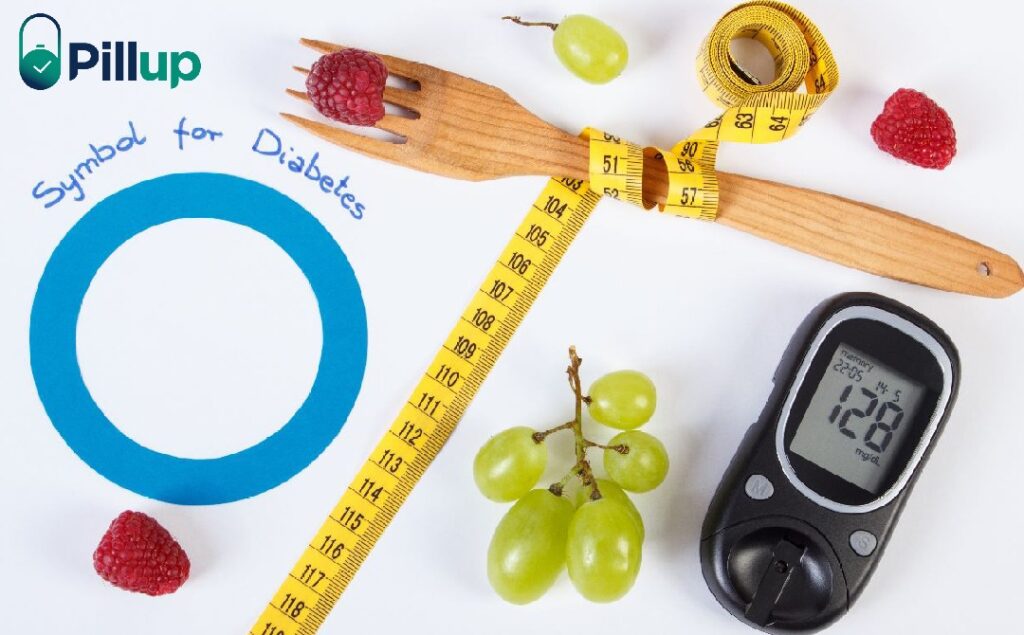The doctor has just delivered the news – your loved one has diabetes. It can be a lot to take in all at once and you may be feeling scared, confused, and even a little bit hopeless right now. But don’t worry, we’re here to help. In this article, we’ll cover everything you need to know about diabetes – what it is, what causes it, how it’s diagnosed, and how it can be managed.
What is diabetes?
Diabetes is a chronic (long-term) condition that affects the way your body metabolizes sugar. In simpler words, it means that your body can’t process sugar properly. When you have diabetes, your body either doesn’t make enough insulin (a hormone that helps sugar to enter cells and be used for energy) or can’t respond properly to the insulin it does produce. This causes sugar to build up in your bloodstream instead of being used for energy.
The constant presence of high blood sugar can lead to a whole host of both short- and long-term health problems, including heart disease, stroke, kidney disease, nerve damage, and even blindness.
How your body reacts will also depend on the type of diabetes you have. Let us understand about the most common types of diabetes
Classification of Most Common Diabetes
There are two main types of diabetes – type 1 and type 2.
Type 1 diabetes, also known as juvenile diabetes or insulin-dependent diabetes, occurs when the body doesn’t produce any insulin. People with type 1 diabetes need to take insulin injections for the rest of their lives.
Type 2 diabetes, on the other hand, is much more common and occurs when the body doesn’t produce enough insulin or can’t respond properly to the insulin it does make. With type 2 diabetes, people can often manage their condition with oral medication, lifestyle changes, and insulin injections.
What are the risk of type 1 diabetes?
Type 1 diabetes is an autoimmune disease, which means that your body’s immune system attacks and destroys the insulin-producing beta cells in your pancreas.
There isn’t anything you can do to prevent type 1 diabetes, but it’s important to know your risk factors. Factors that may increase your risk of developing type 1 diabetes include:
- A family history of type 1 diabetes
- Having another autoimmune disease, such as celiac disease or Graves’ disease
- Being exposed to certain viruses, such as the Epstein-Barr virus
If you have any of these risk factors, it’s important to talk to your doctor. They may recommend that you be tested for type 1 diabetes.
There are two main tests used to diagnose type 1 diabetes: the fasting plasma glucose test and the oral glucose tolerance test.
The fasting plasma glucose test measures your blood sugar after you’ve fasted for at least 8 hours. If your blood sugar is higher than normal, it may be a sign of diabetes.
The oral glucose tolerance test measures your blood sugar after you’ve fasted for at least 8 hours and then drank a sugary drink. If your blood sugar is higher than normal 2 hours after drinking the sugary drink, it may be a sign of diabetes.
If you’re diagnosed with type 1 diabetes, your doctor will likely prescribe insulin injections. They may also recommend making lifestyle changes, such as eating a healthy diet and getting regular exercise.
Know your risk of type 2 diabetes
Type 2 diabetes is much more common than type 1 diabetes. In fact, according to the World Health Organization (WHO), about 95% of people with diabetes have type 2.
Type 2 diabetes usually develops in adulthood, but it’s becoming more common in children and adolescents as well. This is likely due to the increase in obesity and sedentary lifestyles.
There are a number of risk factors for type 2 diabetes, including:
- Family history
- Weight
- Age
- Unhealthy diet
- Lack of exercise
- Smoking
If you have any of these risk factors, it’s important to talk to your doctor. They can help you manage your risk and make lifestyle changes to prevent type 2 diabetes.
If you have type 2 diabetes, your doctor will likely recommend making lifestyle changes, such as eating a healthy diet and getting regular exercise. In some cases, they may also prescribe oral medication or insulin injections.
Diabetes is a serious condition that can lead to a number of health complications, including heart disease, stroke, kidney disease, nerve damage, and even blindness. It’s important to know your risk factors and make lifestyle changes to prevent or manage diabetes. If you have diabetes, it’s important to work with your doctor to keep your condition under control.
The Rising Tide of Diabetes
According to the World Health Organization , about 422 million adults worldwide have diabetes, and the number is rising. In fact, the International Diabetes Federation (IDF) estimates that by 2030, about 643 million adults will have diabetes.
The increase in diabetes is largely due to two factors: the aging population and the rise in obesity. As people age, they’re more likely to develop type 2 diabetes. And as obesity rates continue to rise, more people are developing type 2 diabetes.
To control this rising tide, the WHO is calling for action to prevent and manage diabetes. This includes public awareness campaigns, early diagnosis and treatment, and lifestyle changes to prevent obesity.
If we don’t take action, the number of people with diabetes will continue to rise, and more people will develop complications from the disease. But by taking steps to prevent and manage diabetes, we can help control the rising tide. But how can we manage diabetes? Well, let’s take a look at some of the options.
Common Preventive Measures For Diabetes
The majority of diabetes care is self-care. This means that people with diabetes need to take an active role in managing their condition. There are a number of things people with diabetes can do to prevent or manage the condition.
The first step is to learn as much as possible about the condition. This includes understanding the risk factors, the symptoms, and how to manage the condition.
Other factors that can help prevent or manage diabetes include:
- Lose extra weight
- Be more physically active
- Skip fad diets and make healthier choices
- Eat healthy plant foods
- Maintaining a healthy weight
- Quitting smoking
- Monitoring blood sugar levels
- Taking medication as prescribed
Just by taking care of yourself and making some lifestyle changes, you can go a long way in preventing or managing diabetes. But it’s important to work with your doctor to create a plan that’s right for you.
How The WHO is Trying to Make People Aware of Diabetes?
The World Health Organization has been working to increase awareness of diabetes and its complications. They have launched campaigns and support programs to help people prevent and manage diabetes.
The WHO is also working with governments to improve access to diabetes education, prevention, and treatment. They are also calling for better surveillance of diabetes to track the trends and improve care.
By increasing awareness and access to care, the WHO hopes to control the rising tide of diabetes.
Diabetes education to protect tomorrow
For World Diabetes Day 2022, WHO has decided to focus on diabetes education. This is because they believe that education is a key tool in the fight against diabetes.
The WHO is working to improve access to diabetes education for all people with diabetes. They want to make sure that everyone has the knowledge and skills they need to prevent and manage their condition.
Diabetes education can help people with diabetes:
- Understand their condition
- Make healthy choices
- Stay active and fit
- Monitor their blood sugar levels
- Take medication as prescribed
The WHO is committed to making sure that people with diabetes have the education they need to prevent and manage their condition. With better education, we can help control the rising tide of diabetes.
Supporting global commitments
The WHO does not only focus on World Diabetes Day. They also support global commitments to prevent and control diabetes.
The WHO is working with the International Diabetes Federation (IDF) to bring diabetes care to all people with diabetes. They are also working to increase access to diabetes education, prevention, and treatment.
They aim to do this by working with governments to improve access to care and by supporting research on new ways to prevent and manage diabetes.
Ready to take the next step?
Now you know everything about how to prevent or manage diabetes. You can now take care of yourself or your loved ones by making some lifestyle changes.
You can also support the WHO’s efforts to control the rising tide of diabetes by spreading awareness about the condition. You can do this by sharing this article with your friends and family. Together, we can make a difference.



